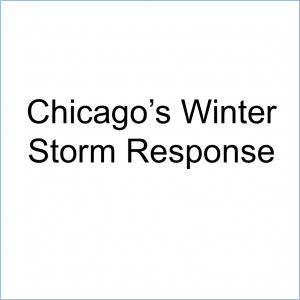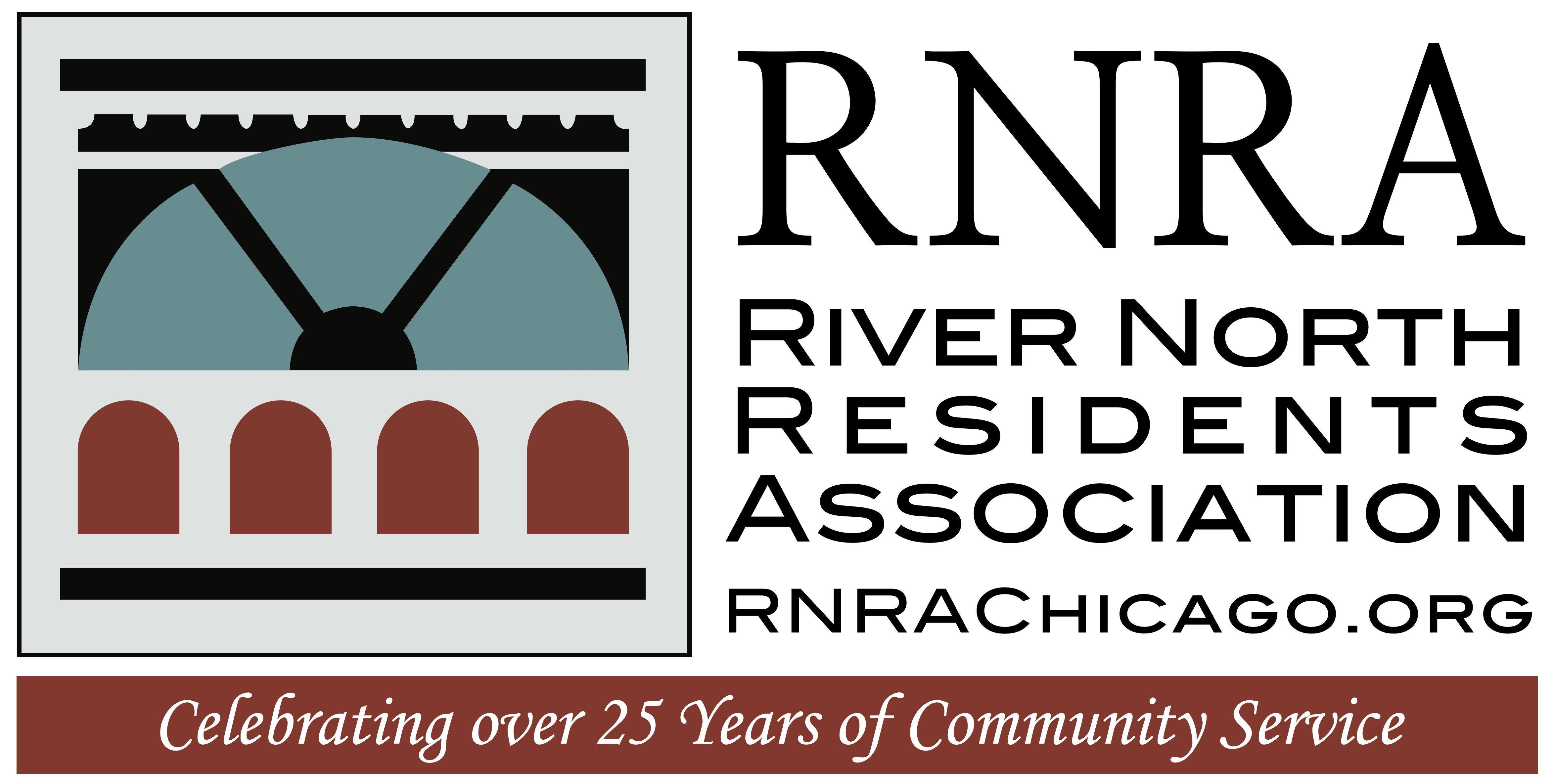
Update on Chicago’s Winter Storm Response and Reminders to Keep Residents Safe as Frigid Temps and Snowfall Continues
Mayor Emanuel and City officials provided an update on the City’s response to snowfall that arrived overnight and earlier this morning. A coordinated citywide response continues to focus on keeping residents – especially those most vulnerable – safe and warm as frigid temperatures and snow is expected to continue into the weekend.
Multiple departments and agencies are working to provide a constant assessment of the situation across the city to ensure the safety of residents as Chicago continues to feel the impact of the snow accumulation.
The Department of Streets and Sanitation continues to monitor road conditions and has deployed more than 280 salt spreaders from its fleet to remove snow and spread salt to ensure streets are safe and passable for motorists and emergency vehicles.
During every snow event, crews work to ensure arterial streets and Lake Shore Drive are clear and safe to keep the City’s major roadways accessible for buses, vital services and emergency vehicles. Crews will continue to plow residential streets, but conditions may vary with the volume of snow and high winds that occurred with the recent weather system. Vehicles will work quickly and safely to make residential streets safe and passable.
FIRE SAFETY TIPS
The Chicago Fire Department does not recommend that residents use space heaters, but acknowledges that people may rely on them during cold winter months. To minimize the dangers of space heaters, the Fire Department recommends only using heaters that are UL certified as safe and never use an extension cord with a space heater, which can cause the cord to overheat and burn. Most importantly, never allow a space heater within three feet of anything that can burn, especially bedding.
Fire officials also encouraged residents to check their carbon monoxide detectors are working properly. With furnaces running during normal cold weather, a small carbon monoxide leak might not be noticed, but with heaters running non-stop to match the extreme cold, that small leak could become a deadly source of fumes. Carbon Monoxide detectors are designed to alert you before you feel sick, so if yours goes off get to fresh air and call 911.
DEPARTMENT OF TRANSPORTATION
The Chicago Department of Transportation (CDOT) is responsible for clearing snow from protected bike lanes, downtown bridge decks and some expressway overpasses. In addition, CDOT’s right of way inspectors are responsible for enforcement of sidewalk snow removal regulations.
The City’s snow clearing ordinance requires property owners to clear a path at least 5 feet wide on all sidewalks adjacent to their property, including any crosswalk ramps. Snow should not be shoveled into the right-of-way, which includes: transit stops and bus pads, parking spaces, bike lanes, bike racks, Divvy stations and any other space where snow impedes traffic of any kind. If you are responsible for a corner lot, you must remove snow and ice from sidewalks on all sides of your building and from corner sidewalk ramps. This applies to residential property and business owners.
DEPARTMENT OF BUILDINGS
During extreme weather, the Department of Buildings focuses its efforts on complaints from tenants regarding inadequate heat and reassigns inspectors to make sure these complaints are dealt with as quickly as possible.
If a tenant is without heat, they should first contact their landlord and then call 311 to report the issue. The Department of Buildings enforces the Chicago Heat Ordinance, which mandates that the temperature inside a rental residence is at least 68 degrees from 8:30 a.m. to 10:30 p.m. and 66 degrees at night. Landlords face fines of up to $500 per day, per violation, for each day they do not supply adequate heat.
Since midnight, the Department of Buildings has received 46 additional heat complaints. All complaints are being addressed and, at this time, there are no reports of conditions that warrant emergency relocation.
DEPARTMENT OF WATER MANAGEMENT
The Department of Water Management adds additional crews during the extreme cold to address any issues that may arise.
To help prevent frozen water pipes, residents should keep a trickle of water running through at least one faucet and allow heat to circulate where water pipes are exposed. If pipes do freeze, use a heating pad or blow dryer to thaw them. Residents should never use open flames for thawing as this creates a fire hazard.
FAMILY AND SUPPORT SERVICES
Those seeking access to warming centers and/or experiencing insufficient heat can visit one of six regional DFSS Community Service Centers that double as warming centers. These Community Service Centers are open from 9 a.m. to 5 p.m., Monday through Friday. The Garfield Community Service Center at 10 South Kedzie is open on a 24-hour basis to connect families and residents to emergency shelters. To connect to a location, residents can call 311 for immediate assistance.
In addition, the City has a network of facilities that serve as warming centers, which include Chicago Public Library branches. Libraries will be open during normal hours, which vary by branch.
In addition, Chicago Public Library branches also serve as warming centers and will be open during normal hours, which vary by branch.
DEPARTMENT OF PUBLIC HEALTH
The Chicago Department of Public Health reminds residents to take extra precautions to stay warm and avoid hypothermia and frostbite. Residents should avoid unnecessary trips outside, and if it is necessary to go outside, wear several loose fitting layers of warm clothing. When shoveling snow, work slowly and take frequent breaks to avoid exhaustion. Be sure to winterize your home and vehicles, and keep cell phones charged with extra batteries for emergencies.
AIRPORTS
To minimize the impact of weather on operations at both airports overnight as and throughout the day, CDA has 280 city drivers operating heavy snow removal equipment to keep runway conditions open and operational. As of 9 a.m. today, airlines are reporting delays averaging 30-45 minutes at O’Hare, and less than 15 minutes at Midway. Due to overnight snow and with weekend snowfall in the forecast, airlines have proactively cancelled more than 700 flights at O’Hare, and more than 250 flights at Midway. Travelers are encouraged to contact airlines on flight status ahead of time, and to arrive early before scheduled flights.
CHICAGO TRANSIT AUTHORITY
The Chicago Transit Authority (CTA) is providing normal weekday service today, and trains and buses are running on every route. Though CTA extensively prepares its trains and buses for winter weather and snow, unpredictable conditions can sometimes cause delays. CTA advises customers to allow extra travel time, and strongly recommend customers get up-to-date bus and train arrival information via the CTA web site transitchicago.com, on Twitter @CTA, sign up for Bus and Train Tracker text/email alerts or access Bus and Train Tracker via mobile phones and at rail stations and bus stops.
To read the full press release, click here.
Alderman Reilly Reports: 2/9/18


